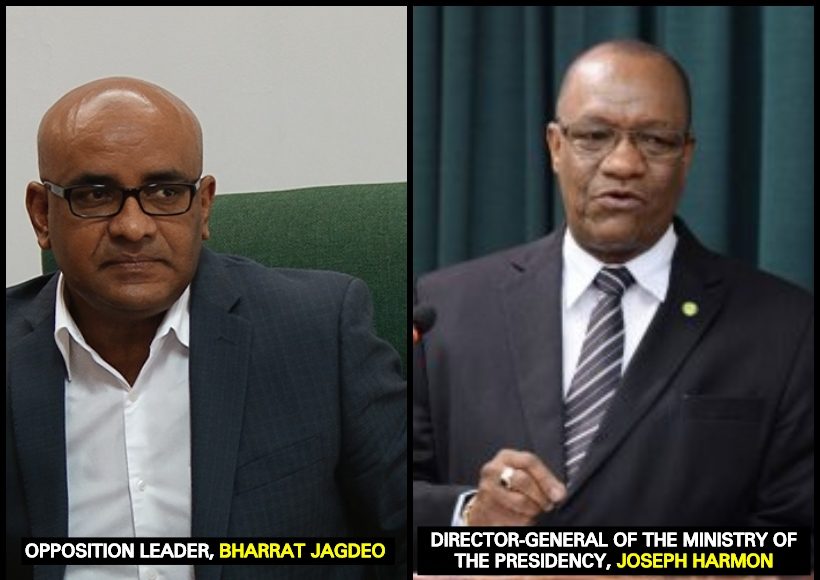Opposition Leader Bharrat Jagdeo has zero confidence in the government’s recently released Green State Development Strategy: Vision 2040. The Strategy seeks to provide a 20-year guideline for the nation’s low-carbon development while ensuring sound education, social protection, new economic opportunities, justice, and political empowerment.
Jagdeo believes that the document is purely theoretical and would prove burdensome to implement.
But Director-General of the Ministry of the Presidency, Joseph Harmon, said that Jagdeo’s comments are without merit. At a press conference held today, Harmon said that the document embodies the collective wisdom of hundreds of stakeholders.
The Director-General noted that there are cases where individuals are simply opposed to documents or initiatives simply because of its affiliation with the government. He subsequently advised the PPP General Secretary to take time to read the strategy so that his opinions could be properly informed.
Turning his attention to the strategy, Harmon noted that the document was developed from a multi-layered nationwide stakeholder consultation process. He explained that a first level tier produced the Framework1 which was completed in 2017. He said that it prioritised Guyana’s long-term development within seven themes.
In the following year, the Director-General noted that seven multi-stakeholder, thematic expert groups with 116 participating professionals from Guyana’s public and private sector and civil society groups were formed to deliberate on the development themes. Harmon said that their work established the policy trajectory under each theme.
Further to this, the Director-General noted that the third layer of consultations was conducted to ensure input from Guyanese citizens through meetings held at 33 cluster sites in coastal and hinterland areas, drawing participation from more than 1,600 citizens in surrounding communities and villages. He said, too, that “green conversations” were also organised in the city and main regional towns and featured international and local speakers.
Several technical workshops were also conducted that built skills and shared knowledge on development methods and approaches. Senior staff of government ministries and agencies, private sector bodies, and civil society groups were consulted and interviewed for their recommendations, the Director-General said.
Harmon said that these inputs, along with secondary research and analyses conducted by researchers and experts (local and international), are described in the document and have collectively served as the basis for developing the policy recommendations.
The strategy can be viewed using this link: https://doe.gov.gy/published/document/5cd1d69fe5569929a69b35b0.













